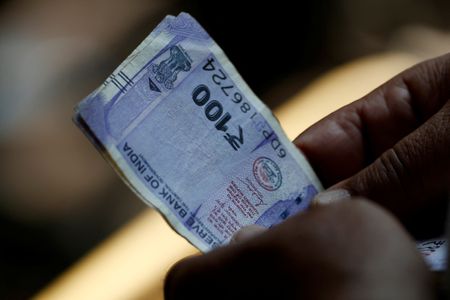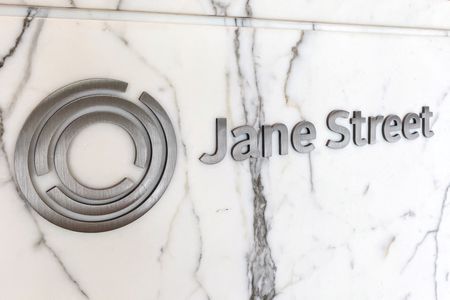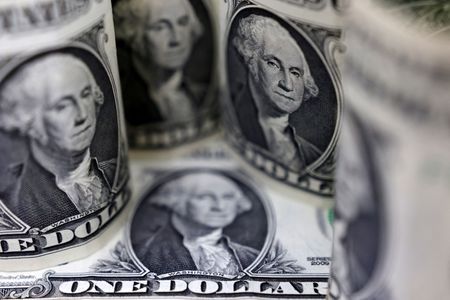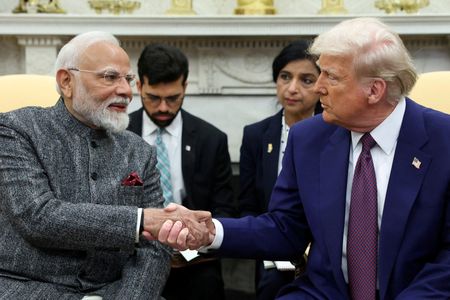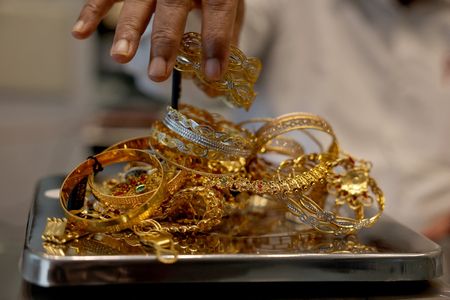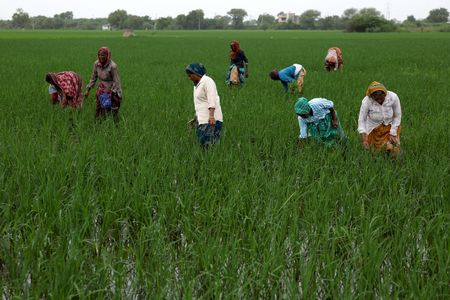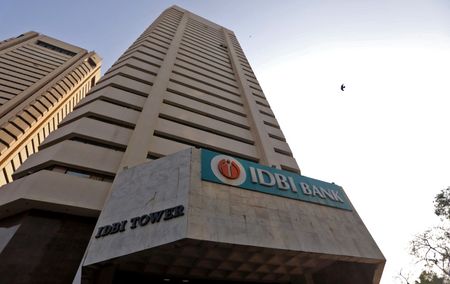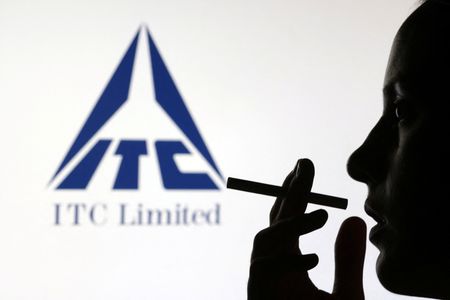By Jaspreet Kalra
MUMBAI (Reuters) – Reciprocal U.S. trade tariffs proposed by President Donald Trump are unlikely to have a significant negative bearing on the rupee, the head of global foreign exchange at Jefferies said.
Last week, Trump unveiled plans to levy reciprocal tariffs on all countries that have tariffs on U.S. goods or set up non-tariff barriers to limit U.S. access to their markets.
Analysts reckon the levies may hamper exports such as petrochemicals and pharmaceuticals, which make up about one-fifth of India’s exports to the U.S.
The tariffs may also hit Asia’s third-largest economy where growth has already turned sluggish. India was the 10th largest exporter to the world’s largest economy in 2024.
Still, the threat “is not enough to move the currency or for the market to reprice any sort of significant currency adjustment,” Jefferies’ Brad Bechtel said in an interview on Tuesday.
“We had far bigger tariffs implemented on China, and there was very little impact.”
India charged a weighted average tariff of about 11% in 2023, around 8.2 percentage points higher than U.S. tariffs on Indian exports, according to estimates from Citi.
The countries have agreed to start talks to clinch an early trade deal and New Delhi has promised to buy more U.S. oil, gas and military equipment and fight illegal immigration after Indian Prime Minister Modi met with Trump in February.
While India’s high-tariff rate puts it at the risk of facing reciprocal tariffs, Bechtel said the outcome is not yet clear as implementation will likely be a multi-step process over several quarters, involving negotiations and counter-tariffs.
“Will it impact the amount that India can export to the U.S.? It all depends on what can be substituted away versus not but I just don’t see it being a material impact to the rupee,” he said.
The rupee is among Asia’s worst-performing currencies in 2025 and slipped to a record low of 87.95 in February.
Jefferies expects the currency to weaken steadily towards 88 by mid-2025 and 89 by the end of the year.
(Reporting by Jaspreet Kalra; Editing by Mrigank Dhaniwala)

